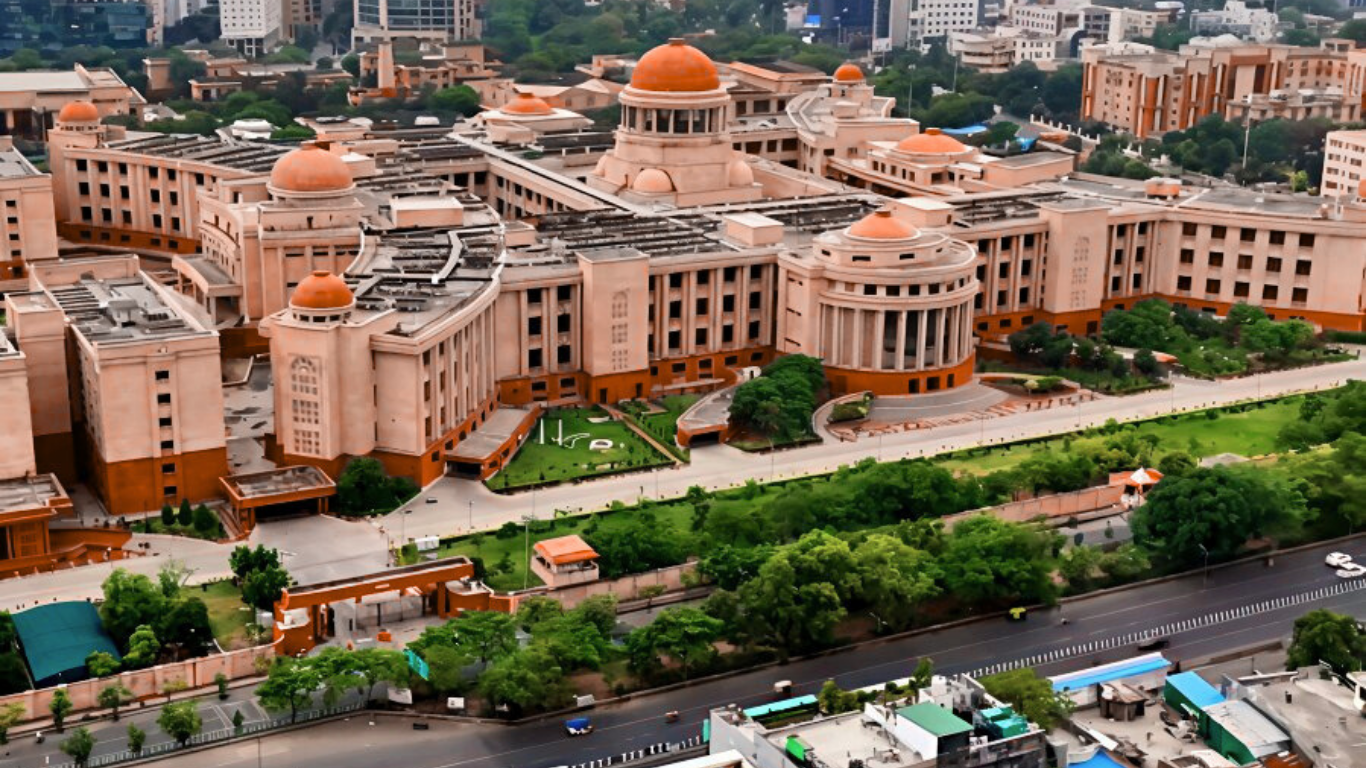
The High Court Lucknow Bench stands as a stronghold of justice in the state of Uttar Pradesh. Situated in the heart of the capital city, it plays a crucial role in shaping the legal framework and maintaining law and order in the region. While the principal seat of the Allahabad High Court is located in Allahabad (Prayagraj), the Lucknow Bench serves as its permanent branch, handling a significant volume of cases independently.
This bench was established to ease the burden of legal matters in the state and to ensure that justice is more accessible to people living in and around the Awadh region. The bench deals with civil, criminal, constitutional, and service-related matters. It caters to the legal needs of numerous districts such as Lucknow, Sitapur, Lakhimpur Kheri, Barabanki, Hardoi, Raebareli, and others.
The High Court in Lucknow is not just a place of law; it is an institution where rights are protected, voices are heard, and justice is delivered. It’s a vital part of the democratic structure, ensuring that the rule of law prevails, irrespective of political power or influence.
Historical Background: How the Lucknow Bench Came Into Existence
The High Court Lucknow Bench was formally established on 1st July 1948. The idea behind setting up a separate bench in the state capital was to bring the judiciary closer to people in the central region of Uttar Pradesh. The increasing number of legal cases and the growing population made it necessary to create a permanent bench to share the workload of the Allahabad High Court.
Before independence, legal matters for the entire state were handled primarily in Allahabad. But as Lucknow gained administrative significance post-1947, the need for a High Court bench became more pressing. The then Chief Justice and political leaders supported the idea, and eventually, the Lucknow Bench was born.
Since its inception, the bench has handled a wide array of cases, ranging from property disputes to landmark judgments on civil liberties. Over the decades, it has contributed to major legal developments and upheld democratic values in the state.
The building itself is a blend of colonial and modern architecture. Set in a peaceful environment, it reflects both the heritage and functionality of the Indian judicial system.
Jurisdiction and Important Cases
The High Court Lucknow Bench exercises jurisdiction over several districts in central Uttar Pradesh. These include Lucknow, Sitapur, Hardoi, Unnao, Lakhimpur Kheri, Barabanki, Raebareli, Bahraich, Shravasti, and Gonda. Litigants from these regions approach the bench for both civil and criminal matters.
The court deals with a broad range of cases. Constitutional petitions (Article 226), service matters of government employees, criminal appeals, civil revisions, writ petitions, and public interest litigations (PILs) are frequently filed and heard here. Over the years, the bench has delivered several significant rulings that have influenced not just state policies but also national legal discussions.
One of the most talked-about cases was the Aarushi-Hemraj murder case appeal, which saw intense media and public attention. The bench has also played a major role in cases related to service laws, environment protection, and human rights.
Every year, thousands of litigants, lawyers, and law students visit the court to participate in or witness proceedings. This makes the Lucknow Bench an active and vibrant part of the legal landscape.
Facilities and Accessibility for the Public
The High Court Lucknow Bench is designed to serve not just lawyers and judges but also the general public. The court premises are spacious and secure, with multiple courtrooms, administrative buildings, and waiting areas. Litigants can access court records, file petitions, and seek legal assistance with relative ease.
In recent years, the bench has undergone several upgrades to improve convenience and transparency. Courtrooms are now equipped with digital display boards showing case status and hearing schedules. The e-filing facility has been introduced to reduce paperwork and speed up case processing. This has been especially useful during the COVID-19 pandemic, ensuring that justice delivery remains uninterrupted.
There is a proper system of security at the court entrance, and the environment inside is formal but respectful. People visiting the court are expected to maintain decorum and follow legal procedures. There are helpdesks and facilitation centers to assist first-time litigants.
For law students and researchers, the court’s library is a valuable resource. It houses hundreds of legal books, journals, and previous judgments that help in academic and professional growth.
Legal Community and Culture
The legal community at the High Court Lucknow Bench is diverse and deeply experienced. From young aspiring lawyers to senior advocates with decades of courtroom practice, the bench sees a healthy mix of legal minds. The Bar Association at the Lucknow Bench is active and often takes up important issues related to the legal profession and public welfare.
Judges at the Lucknow Bench are appointed through a rigorous selection process and are known for their integrity and deep knowledge of the law. Many have gone on to become Chief Justices or serve in the Supreme Court. Their judgments are often quoted in other courts, reflecting the bench’s influence.
The legal culture in Lucknow is known for its decorum and discipline. Unlike the loud chaos sometimes seen in other places, proceedings here are generally conducted in a calm and respectful environment. This allows for thoughtful arguments and fair judgment.
Legal aid cells and public interest litigation forums also operate from within the High Court premises, offering assistance to the underprivileged sections of society who may not afford high legal fees.
Conclusion:
The High Court Lucknow Bench is more than just a building of bricks and mortar. It is a living institution that upholds justice, equality, and democracy. From handling complex legal disputes to protecting fundamental rights, the court plays a vital role in the lives of citizens across central Uttar Pradesh.
Its long-standing history, influential judgments, and dedicated legal community make it a trusted pillar in the state’s governance system. Whether you’re a lawyer, a law student, or a common citizen seeking justice, the High Court Lucknow remains a place of hope and fairness.
In a time when trust in institutions is more important than ever, the Lucknow Bench stands firm as a symbol of what the judiciary should be—strong, unbiased, and always in service of the people.



